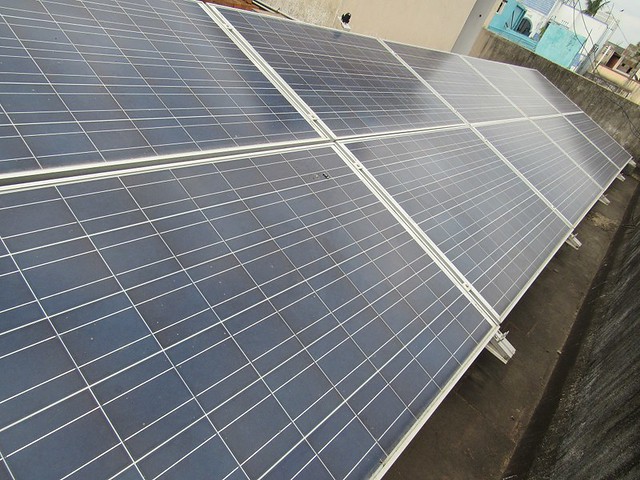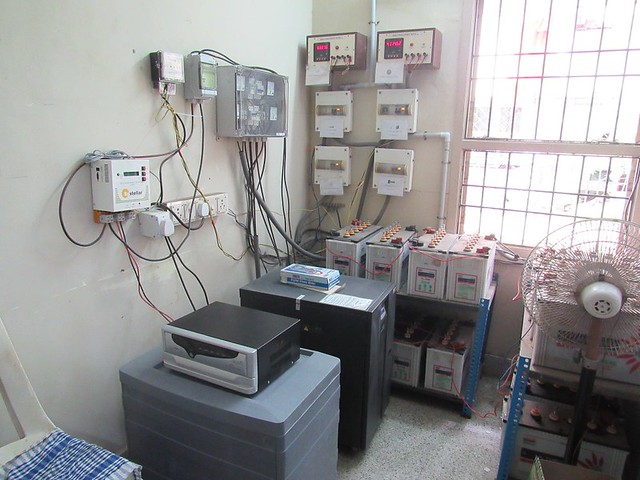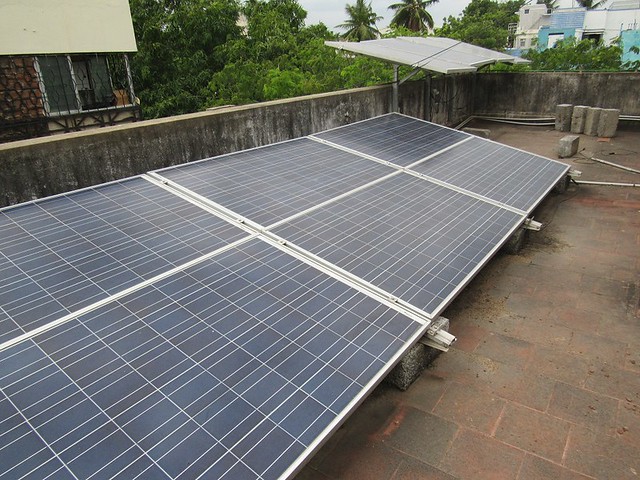I met Mr. Balachander (and team) of Manufacturing Logistics Control, Chennai, recently. They have installed a 5 KW Solar system two years ago, and another 1 KW solar system recently. I went to see the solar system in their premises and talk to them about their experience with the same.

It seems they have been running almost everything in their office including AC, fans, lights, servers, computers, etc. for most part of the day using solar power generated by the 5 KW solar system . This system consists of 20 x 250 Wp panels, 5 KVA grid shared system inverter, 16 x 40 AH battery bank. When the power generated by solar power is insufficient, the power from the grid and batteries chip in. One important feature of their system is: Power from different sources is shared, not switched.
They use energy efficient appliances like Inverter ACs, LED lights, Super fan, etc. They also measure the amount of energy generated and the amount of energy consumed from each source, at every step. They have plotted a graph with energy bills before and after the installation of solar panel system and the savings is considerable.
Off-grid solar systems, which they recommend, has two important advantages over grid-tied solar systems. First, there is energy security for the customers as this system (with batteries) will provide non-stop power during the day and night, even during the few hours of power cuts. Secondly, customers will not face the problem of low voltage during the nights (which is common in many houses) as the system will compensate for the same.

They feel that adopting energy efficient appliances has made a huge difference in accelerating the RoI after the installation of solar PV modules. They are now testing out a 1 KW system with a smart charge controller that can intelligently switch between battery power (via. solar) and grid power.
Based on their own experience they are planning to provide similar solutions for customers with existing Inverter systems. There are three common capacities of Inverters systems and hence solar panels, batteries, and other equipment are recommended based on it. So for 650 VA Inverter systems, they recommend one solar panel of 250Wp; for 850 VA Inverter systems, they recommend two solar panels of 250 Wp; for 1500 VA Inverter systems, they recommend four solar panels of 250 Wp. The battery capacity will be decided based on the number of hours of back up required.
As you can see, such a solution will require customization for each customer, and hence the company is willing to do an energy audit, and will recommend the appropriate solar system based on customer usage, existing appliances, etc. for each customer. You can contact them via the contact form available on their website.
Have a look at their blog post that contains detailed analysis after a year of running their office on solar power.

Disclaimer: This blog post is for your information only and is not a recommendation. This blog is not affiliated with the above mentioned company in anyway and hence readers are recommended to do their own evaluation/analysis before deciding to buy any product or service from the company mentioned on this blog post.
